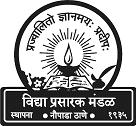Abstracts Accepted
The Relationship between Creativity and Mental Disorder In An African Setting
O.Olugbile*
M.Zachariah**
Abstract
Background
There has for some time now been recognition in the Western world that there was a relationship between exceptional creative talent and mental disorder. The works of Andreasen (Andreasen, 2008) and others in this area have been very significant. However most of the research has been carried out in USA and Europe. There is very little that has come out of Africa on the subject.
Aims
1. To survey the beliefs of different groups within an African society – concerning the possibility of a relationship between creative talent and mental disorder.
2. To seek to establish or refute the existence of psychopathology within a community of creative individuals, and also to seek to measure creativity within a community of people with a formal diagnosis of mental disorder.
Methods
Some of the mythology of the Yoruba was examined for content concerning the behaviour of certain notable individuals and the existence of psychopathology based on modern-day criteria.
The beliefs of members of the general public and mental health professionals concerning the existence of a relationship between creative talent and psychopathology were surveyed using a questionnaire designed for the project.
A sample of patients with formal diagnoses of Affective Disorder or Schizophrenia drawn from two units – the Lagos State University Teaching Hospital and the Federal Neuropsychiatric Hospital Yaba were assessed for ‘Creativity’.
Results
One in every two members of the public believe that talented people show ‘eccentric’ or ‘abnormal’ behaviour, though it often does not require formal ‘diagnosis’ or treatment as society is generally tolerant of them. Among mental health professionals surveyed, who were clinical psychologists and psychiatrists, three out of four believe that creatively talented people such as musicians and painters are more prone to displaying personality abnormalities and drug abuse than other people. There is less agreement about formal mental disorder, such as Affective Disorder and Schizophrenia.
The survey of patients is inconclusive, based on small sample size (20 patients with a diagnosis of Schizophrenia, 20 with Bipolar Affective Disorder.)
Conclusion
There is a fond cultural acceptance of creative and talented people despite the perception that they are disproportionately prone to drug abuse (cannabis) and ‘eccentric’ behaviour. The linkage with formal mental disorder is less clearly recognised.
More research is required into this important subject in Africa.
Key Words: Cultural beliefs; Creativity; Mental disorder; Personality; Drug abuse
Reference:
Andreasen N.C., (2008), The relationship between Creativity and Mood Disorders, Dialogues in Clinical Neurosciences, 10 (2): p251-255.
…………………………………………………………………….
*FRCPsych. Department of Psychiatry, Lagos State University Teaching Hospital,
1-3 Oba Akinjobi Street, GRA, Ikeja, Lagos State, Nigeria. (Correspondence)
Email: femi_olugbile@yahoo.com
**PhD. Department of Psychiatry, Lagos State University Teaching Hospital,
1-3 Oba Akinjobi Street, GRA, Ikeja, Lagos State, Nigeria
Email: zachmathew@yahoo.com
Final accepted MBC JAN 2010
